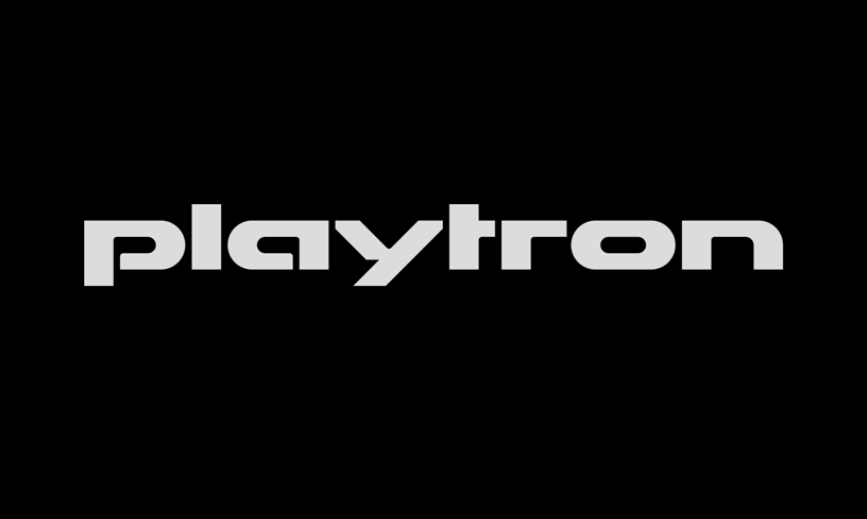The Transformative Power of AI in Gaming
Is Ready Player One a Reality?

In recent years, the integration of artificial intelligence (AI) into the gaming industry has ushered in a new era of possibilities. Beyond the realms of mere entertainment, AI is shaping the way we experience and interact with virtual worlds, echoing the visionary implications presented in the movie “Ready Player One.” The movie highlights the profound impact of immersive virtual reality on society, including themes of escapism, the blurring lines between digital and physical realities, and the intense power struggles over the control of virtual spaces.
This article explores the multifaceted implications of AI in gaming, from personalized adventures to adaptive gameplay and beyond, underlining how these technological advancements are not just reshaping the gaming industry but also offering a glimpse into future societal transformations. We also highlight Alumni Ventures portfolio companies who are helping deliver these advancements.
Learn More about the AI Fund
We are seeing strong interest in this fund as prior AI Fund vintages were oversubscribed, and we’ve had to establish a waitlist to accommodate interest.
If interested, we recommend securing a spot promptly.
Max Accredited Investor Limit: 249
REPORT AUTHORS

Jack Statza
Partner, AI First Fund and Blockchain & Fintech FundJack Statza brings deep-tech venture investing expertise across sectors and stages to his work at Alumni Ventures. He was previously an early-stage investor at Allstate Strategic Ventures, the venture capital arm of Allstate Insurance Company, primarily focusing on AI/ML, Blockchain, and Enterprise SaaS.

Adam Mastrelli
AV AI Fund Scout and Partner with Woodstock FundAdam Mastrelli is a Partner with Woodstock Fund, where he is focused on Infrastructure, DeFi, and Gaming applications. Adam also sits on the advisory board for Outerlands Capital, a systematic digital asset manager. Previously, Adam spent 10 years with IBM, launching digital asset initiatives and cultivating relationships across public-private institutions, state and local governments, and emerging markets.
1. Personalized Adventures
One of the most promising aspects of AI in gaming is the potential for personalized adventures. Imagine a gaming experience that tailors itself to each individual gamer’s unique preferences and playing styles. With generative AI, game environments, characters, and quests can be dynamically created, offering every player a customized journey.
This level of personalization goes beyond simple character customization options. AI algorithms can analyze a player’s past choices, preferred play style, and emotional responses to adapt the game world in real time. The result is an ever-evolving narrative that responds to the player’s actions, creating a gaming experience that feels uniquely their own.

AV PORTFOLIO COMPANY EXAMPLE
SoWord: Developer of the world’s first massively multiplayer online workplace, applying gaming principles to create a virtual office for hybrid work.
2. Adaptive Gameplay
AI’s ability to adapt extends to gameplay itself. Traditional games often follow a fixed difficulty curve, which may alienate players of varying skill levels. AI-driven adaptive gameplay aims to change this by dynamically adjusting the game’s difficulty based on the player’s performance.
By analyzing player behavior, AI can identify patterns and skill levels, tweaking the challenges presented to ensure a balance between difficulty and enjoyment. This keeps the experience engaging for players of all skill levels.

AV PORTFOLIO COMPANY EXAMPLE
Believer: An innovative gaming studio disrupting the “box product” mindsets of past games with a new era of non-linear, multi-player, open gameplay.
3. Procedural Content Generation
The concept of procedurally generated content is not new, but AI takes it to new heights. In gaming, this means that entire worlds, levels, characters, and quests can be generated on-the-fly, offering an infinite variety of possibilities. The result is greater replay value, with no two gaming experiences are exactly alike.
Procedural content generation powered by AI can create diverse and dynamic environments, fostering a sense of exploration and discovery. Whether it’s exploring uncharted territories or encountering unique challenges, players can expect the unexpected in a gaming landscape shaped by intelligent algorithms.

AV PORTFOLIO COMPANY EXAMPLE
Anything World: An AI-enabled middleware platform that helps developers build interactive 3D experiences for games, images, and video production — at lower costs and speeds 40% faster than alternatives.
4. Realistic NPCs
Non-player characters (NPCs) play a crucial role in shaping the immersive quality of a game. AI brings a new level of realism to NPCs by endowing them with dynamic behaviors, personalities, and even memories. Instead of scripted responses, NPCs can now react to the player’s actions in a more natural and lifelike manner.
Imagine a virtual world where NPCs have their own agendas, form alliances, or hold grudges based on past interactions. This not only enhances the narrative depth but also creates a more immersive and believable gaming environment. Players can form meaningful connections with virtual characters, making the gaming experience feel more like an interactive story.

AV PORTFOLIO COMPANY EXAMPLE
Replikant: This 3D animation platform enables users to create 3D avatars and cinema-quality animated content, plus mint NFT avatars.
5. Natural Language Processing (NLP)
The integration of natural language processing (NLP) in gaming opens up new avenues for communication between players and virtual characters. Instead of selecting predefined dialogue options, players can engage in conversations using natural language, allowing for more organic and spontaneous interactions.
This development has profound implications for storytelling in games. Conversations can become more dynamic and responsive, with AI-driven characters understanding context, tone, and intent. As a result, the role-playing aspect of games is stronger and narrative experiences more nuanced and personalized narrative experiences.

AV PORTFOLIO COMPANY EXAMPLE
Sizzle: This Deep AI Engine analyzes video, audio, and chat of live streams across sports or gaming broadcasts to create hyper-personalized highlights for its viewers.
6. AI-Driven Storytelling
Building on the idea of personalized adventures, AI-driven storytelling takes narrative immersion to the next level. Traditional linear narratives are giving way to branching storylines that evolve based on the player’s choices. AI algorithms analyze player decisions and adapt the narrative accordingly, creating a truly interactive, dynamic storytelling experience.
The implications of AI-driven storytelling go beyond player agency. Game developers can create expansive and intricate narratives with countless permutations, offering players a sense of agency and impact on the game world. This enhances replayability plus blurs the line between traditional gaming and interactive storytelling.

AV PORTFOLIO COMPANY EXAMPLE
Barnyard: A game studio focused on creating high-quality UGC gaming content in the Unreal Engine Fortnite (UEFN) platform.
7. Enhanced Graphics and Animation
While AI’s impact on gameplay and narrative is profound, it also extends to the visual aspects of gaming. Graphics rendering and animation — traditionally resource-intensive tasks — can benefit significantly from AI algorithms. By leveraging machine learning, games can achieve more realistic visuals without compromising performance.
AI can be used to generate high-quality textures, improve lighting effects, and even predict player movements to enhance animation fluidity. This results in a more visually stunning and immersive gaming experience, pushing the boundaries of what is possible in virtual worlds.

AV PORTFOLIO COMPANY EXAMPLE
Playtron: A next-generation mobile operating system to play AAA games with the same fidelity that you’d expect from your TV or computer — with Web3 features.

AV PORTFOLIO COMPANY EXAMPLE
Hadean Supercomputing: Provider of the essential computing infrastructure needed to power the scalable building and staging of Metaverse / Web3 applications.
8. Anti-Cheat Systems
In the realm of online multiplayer gaming, maintaining fair play is a constant challenge. AI comes to the rescue with sophisticated anti-cheat systems that analyze player behavior to detect potential cheating activities. By identifying patterns indicative of cheating, AI algorithms contribute to creating a level playing field for all gamers.
These anti-cheat systems go beyond traditional methods by continuously adapting to new cheating techniques. This ongoing battle between cheaters and AI-driven detection mechanisms ensures a more secure, enjoyable online gaming experience for the vast community of players.

AV PORTFOLIO COMPANY EXAMPLE
Mythical Games: A game-technology platform for the buying, trading, and selling of in-game digital assets that are unique and personal to the user. The blockchain ensures that no counterfeiting or exploits can occur in game.
9. Virtual Reality (VR) / Augmented Reality (AR) Enhancements
Virtual reality (VR) has introduced a new dimension to gaming, and AI further augments this experience. AI algorithms can improve VR environments by creating more realistic and dynamic worlds. From realistic physics simulations to adaptive virtual landscapes based on player actions, AI contributes to a more immersive VR gaming experience.
Gesture recognition, another aspect of VR gaming, can benefit from AI’s ability to interpret and respond to intricate movements. This can intensify the player’s sense of presence in the virtual world and open up new possibilities for interactive VR gameplay.

AV PORTFOLIO COMPANY EXAMPLE
StatusPRO: Creator of sports video games featuring 3D player simulations experienced through a VR headset.

AV PORTFOLIO COMPANY EXAMPLE
Jadu: An augmented reality (AR) game studio known for creating a cutting-edge, multiplayer, AR fighting game for mobile devices, emphasizing rivalries and competitions.

AV PORTFOLIO COMPANY EXAMPLE
Mythic: Developer of a unique AI compute platform that runs on edge devices (VR headsets, smart cameras, gaming systems, intelligent appliances, etc.).

AV PORTFOLIO COMPANY EXAMPLE
Illumix: Transforming the future of mixed reality with environmentally intelligent, world-scale, augmented reality (AR) games.

AV PORTFOLIO COMPANY EXAMPLE
Sinn Studio: VR gaming studio utilizing proprietary game development software and AI tools to deliver innovative and immersive extended reality (XR) combat games.
10. Personalized Marketing
Beyond the gaming experience itself, AI plays a role in personalized marketing in the gaming industry. By analyzing player preferences, behaviors, and engagement patterns, AI algorithms can offer targeted game recommendations and marketing promotions.
This benefits both players by introducing them to games that align with their tastes and game developers and publishers by enabling them to optimize their marketing strategies. Personalized marketing powered by AI can lead to more effective user acquisition and retention, ultimately shaping the success of games in a competitive market.

AV PORTFOLIO COMPANY EXAMPLE
Anzu: Advertising platform and analytics tool for the gaming industry.

AV PORTFOLIO COMPANY EXAMPLE
GamerGains: Next-gen gaming company, democratizing earn-ability across the gaming ecosystem irrespective of skill level. The user data it collects can be used to personalize advertising and host rewards for trying out new games.
11. AI-Generated Music and Soundscapes
The audio landscape of gaming is also enhanced by AI. Algorithms can generate dynamic and adaptive soundtracks based on in-game events, player actions, and the overall mood. This level of customization adds a layer of immersion, with the music responding in real-time to the ebb and flow of the gameplay.
AI can also contribute to the creation of realistic and dynamic soundscapes, enhancing the overall audio experience. From the rustling of leaves in a virtual forest to the echoes of footsteps in an empty corridor, AI-generated audio adds to the realism and emotional impact of gaming environments.

AV PORTFOLIO COMPANY EXAMPLE
Napster: Leveraging blockchain and token-based economics to bring the current Web2 music streaming economy into the Web3 era. In addition, they are using ChatGPT for AI-powered music playlist creation.

AV PORTFOLIO COMPANY EXAMPLE
PIXELYNX: Transforming the way music is consumed in the metaverse through a combination of Web3, gaming, UGC, and AI.
Ready Player One on the Horizon
The integration of AI into gaming is transforming the way we play, experience, and interact with virtual worlds. As gamers continue to demand more personalized, dynamic, and immersive experiences, AI stands poised to redefine the very nature of gaming. Whether it’s pushing the boundaries of graphics and animation, creating lifelike NPCs, or revolutionizing storytelling, AI is a gateway to new dimensions of gaming entertainment and engagement. In fact, AI might redefine the very nature of gaming, offering a glimpse into a “Ready Player One” future where each interaction is a unique adventure, and the boundaries between the virtual and the real blur in unprecedented ways.
Learn More about the AI Fund
We are seeing strong interest in this fund as prior AI Fund vintages were oversubscribed, and we’ve had to establish a waitlist to accommodate interest.
If interested, we recommend securing a spot promptly.
Max Accredited Investor Limit: 249